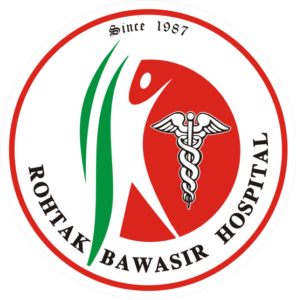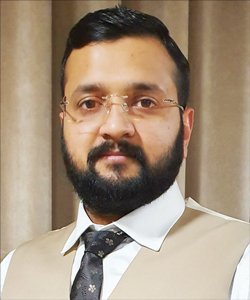Piles During Pregnancy: Causes, Symptoms, and Safe Treatments


Updated on: 4th Jun 2024
Pregnancy is a beautiful yet challenging phase in a woman’s life. Along with the joy of expecting a baby, many women experience various physical discomforts, one of which is piles (hemorrhoids). Piles during pregnancy are common due to hormonal changes, increased pressure on the rectal veins, and constipation. While they can be painful and bothersome, there are safe treatments to manage them effectively. This blog explores the causes, symptoms, and safe treatment options for piles during pregnancy.
Causes of Piles During Pregnancy

Several factors contribute to the development of piles during pregnancy, including:
1. Increased Pressure on the Rectal Veins
As the uterus expands to accommodate the growing baby, it exerts increased pressure on the veins in the rectal area. This pressure can lead to swelling and inflammation of these veins, resulting in hemorrhoids.
2. Hormonal Changes
Pregnancy hormones, especially progesterone, cause the walls of blood vessels to relax, making them more prone to swelling. Progesterone also slows down digestion, leading to constipation, which is a major risk factor for piles.
3. Constipation
Many pregnant women experience constipation due to hormonal changes and dietary shifts. Straining during bowel movements puts excessive pressure on the rectal veins, increasing the likelihood of developing piles.
4. Increased Blood Volume
During pregnancy, blood volume increases significantly to support the baby’s growth. This added volume can enlarge the veins, making them more susceptible to swelling and hemorrhoids.
5. Prolonged Sitting or Standing
Sitting or standing for long periods can restrict blood flow in the pelvic region, leading to increased pressure on the rectal veins and the formation of piles.
Symptoms of Piles During Pregnancy

Piles can cause a range of uncomfortable symptoms. Common signs include:
Pain or Discomfort: Mild to severe pain around the anus, especially while sitting or during bowel movements.
Itching or Irritation: The affected area may feel itchy due to inflammation.
Swelling Around the Anus: Swollen veins may be visible or felt as lumps.
Bleeding During Bowel Movements: Bright red blood may be noticed on toilet paper or in the stool.
Mucus Discharge: Some women experience mucus discharge along with stool.
A Feeling of Incomplete Bowel Emptying: Hemorrhoids may cause a sensation of fullness even after passing stool.
Safe Treatments for Piles During Pregnancy

Although piles can be painful, there are several safe and effective treatments to manage the condition during pregnancy.
1. Dietary Changes
Eating a high-fiber diet helps soften stools and reduce constipation. Include:
Whole grains (brown rice, oats, whole wheat bread)
Fresh fruits (apples, pears, prunes, bananas)
Vegetables (broccoli, carrots, spinach)
Legumes (lentils, chickpeas, beans)
Nuts and seeds (flaxseeds, chia seeds)
2. Staying Hydrated
Drinking plenty of water (8-10 glasses daily) prevents dehydration and keeps stools soft, making bowel movements easier.
3. Regular Exercise
Light physical activities like walking, prenatal yoga, and pelvic floor exercises improve circulation and reduce pressure on rectal veins.
4. Practicing Good Bathroom Habits
Avoid straining while passing stool.
Use a footstool to elevate your feet while sitting on the toilet to reduce pressure on the rectal veins.
Do not delay bowel movements when you feel the urge.
5. Sitz Baths
Soaking the anal area in warm water for 10-15 minutes multiple times a day helps reduce pain, swelling, and irritation.
6. Using Cold Compresses
Applying an ice pack wrapped in a soft cloth to the affected area for 10-15 minutes can reduce swelling and numb pain.
7. Over-the-Counter Remedies
Certain topical treatments and medications are safe for pregnant women, but they should only be used after consulting a doctor. These include:
Witch hazel pads (soothing and anti-inflammatory)
Aloe vera gel (natural healing properties)
Pregnancy-safe hemorrhoid creams (with ingredients like lidocaine or hydrocortisone)
Stool softeners (to ease bowel movements)
8. Kegel Exercises
Kegel exercises strengthen the pelvic floor muscles, improving blood circulation and reducing the risk of hemorrhoids.
9. Elevating the Legs While Resting
Keeping the legs slightly elevated while resting or sleeping improves blood circulation and reduces pressure on the rectal veins.
When to See a Doctor
While mild cases of piles can be managed at home, medical attention is necessary if:
Bleeding becomes excessive or persistent.
Severe pain or discomfort interferes with daily activities.
Piles become prolapsed (bulging outside the anus and not retracting).
There are signs of infection (fever, excessive swelling, pus discharge).
A doctor may recommend safe medical treatments such as prescription medications, minor procedures, or in rare cases, surgery after delivery.
Can Piles Be Prevented During Pregnancy?
Although piles are common in pregnancy, taking preventive measures can reduce the risk:
Maintain a fiber-rich diet to prevent constipation.
Drink plenty of fluids.
Exercise regularly.
Avoid prolonged sitting or standing.
Follow good bathroom habits.
Perform Kegel exercises to strengthen the pelvic floor muscles.
Conclusion
Piles during pregnancy can be uncomfortable but are manageable with the right approach. By making dietary and lifestyle changes, practicing good hygiene, and using safe treatments, pregnant women can find relief from symptoms. However, it is crucial to consult a doctor before trying any medication or remedy. With proper care, piles can be controlled effectively, allowing mothers-to-be to focus on a healthy and happy pregnancy.
Meet Our Specialists

Dr. Raj Kumar Garg (B.A.M.S.)
40+ Years of Experience

Dr. Rahul Garg (B.A.M.S.)
15+ Years of Experience






































